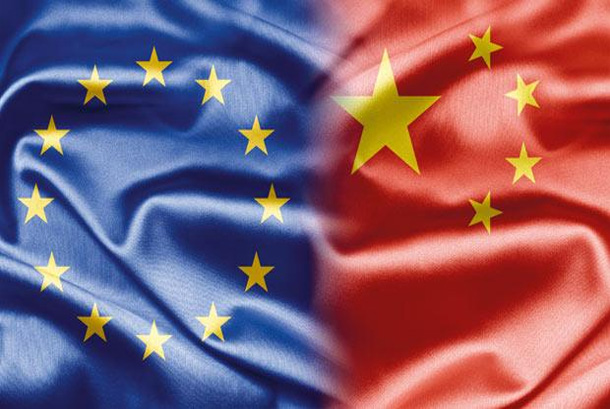 Brussels — The 35th round of the EU-China Human Rights Dialogue was held in Brussels on 22-23 June. During the meeting, the EU side raised the issue of Tibet and urged China to release the Tibetan activists, writers and religious figures who face criminal charges or have been imprisoned for exercising their right to freedom of expression.
Brussels — The 35th round of the EU-China Human Rights Dialogue was held in Brussels on 22-23 June. During the meeting, the EU side raised the issue of Tibet and urged China to release the Tibetan activists, writers and religious figures who face criminal charges or have been imprisoned for exercising their right to freedom of expression.
The EU said that the situation for civil and political rights in China among the top issues were discussed together with the need to implement recommendations from international bodies.
During the Dialogue, China ironically raised concerns of racial discrimination, exclusionism, infringement of minority rights and power abuse of the police in the EU.
The meeting took place in the aftermath of Greece's veto. A Greek foreign ministry spokesperson stated on the issue: "We acted from a position of principle. There is an upcoming dialogue between the EU and China on human rights and we think that could be a more efficient and constructive way of delivering better results."
Furthermore, several human rights organizations supported that the EU should cancel the human rights dialogue with China and return only when proven progress has been realized. Human Rights Watch mentioned that Greece's veto was not the last case during last month where the EU does not show its clear will to condemn the human rights abuses in China. More in detail, Sophie Richardson, China director at Human Rights Watch, said: "On three occasions over three weeks the EU demonstrated no intention, compassion, or strategic vision to stem the tide of human rights abuses in China".
"The two-day programme included the meeting of the Dialogue on the first day, and round-table discussions between European and Chinese participants, including Members of the European Parliament, representatives from civil society and academia, as well as a field visit to the refugee centre Bruxelles-Petit-Château on the second day," the EU said in a statement after the meeting.
"The meetings allowed for candid discussions on a wide range of human rights related issues and cases of concern," the statement added.
The EU statement further reads as follows: "During the Dialogue, the European Union emphasised the deteriorating situation for civil and political rights in China, which has been accompanied by the detention and conviction of a significant number of Chinese human rights defenders and lawyers. Restrictions on the freedom of expression in China, and systemic issues in the criminal justice system, including cases of arbitrary detention and allegations of torture, were also raised by the European Union. In addition, the two sides discussed migration and the rights of refugees, the freedom of religion and belief, the rights of persons belonging to minorities, especially in Tibet and Xinjiang, and the freedom of peaceful assembly and association, including the implementation of China's Foreign NGO Activity Management Law.
Human Rights Dialogue provided an opportunity for the European Union to raise the cases of human rights defenders whose detention and conviction by the Chinese authorities is incompatible with the nature of their work to promote human rights. The expectation of the European Union, as reiterated in the Dialogue, is that all individuals detained in connection with their advocacy of human rights be released from custody, that they should be allowed to be represented by a lawyer of their choosing, be given the possibility of meeting their family members, have access to appropriate medical assistance when required, and have allegations of their mistreatment promptly investigated."
The cases raised by the European Union included:
- Political prisoners Liu Xiaobo and Ilham Tohti;
- Human rights lawyers Jiang Tianyong, Wang Quanzhang and Xie Yang;
- Individuals imprisoned in connection with their exercise of the universally-recognised right to freedom of expression, including Lu Yuyu, Zhang Haitao, Lû Gengsong, and Huang Zerong; Individuals persecuted for their religious beliefs, including Hu Shigen, Huang Yizi, Shao Zhumin, Li Guozhi, Gu Yuese and Zhang Shaojie.
- Individuals detained or sentenced in connection with their activities in promoting freedom of association, including Tashi Dorje, Meng Han, Xu Zhiyong and Guo Feixiong
- Tibetan activists, writers and religious figures who face criminal charges or have been imprisoned for exercising their right to freedom of expression, including Tashi Wangchuk, Druklo and Lobsang Kunchok.
Cooperation in international fora and the need to implement recommendations from international bodies, particularly recommendations which China received during its most recent UN Universal Periodic Review in 2013, were also discussed.
During the roundtable discussion, participants discussed the EU's and China's respective policies and practices for promoting and protecting human rights, including the role played by legislators, civil society and academia.
The European Union's delegation was led by Ms Paola Pampaloni, Deputy Managing Director for Asia and the Pacific in the European External Action Service. The Chinese delegation was led by Ms Liu Hua, Special Representative for Human Rights and Deputy Director General for International Organisations and Conferences, Ministry of Foreign Affairs of the People's Republic of China.


![Tibet has a rich history as a sovereign nation until the 1950s when it was invaded by China. [Photo: File]](/images/stories/Pics-2024/March/Tibet-Nation-1940s.jpg#joomlaImage://local-images/stories/Pics-2024/March/Tibet-Nation-1940s.jpg?width=1489&height=878)















